Entrepreneurship and Innovation can sometimes be very nebulous concepts and the way they are taught are often as diverse the diversity of entrepreneurial ventures themselves. There are many approaches to teach Entrepreneurship and many educators champion methods that I call the dogmatic approach – i.e. run by a central dogma that they themselves believe in or are convinced is the best way to teach Entrepreneurship. Dogmas such as the “Lean Startup” or “Agile” or "effectuation". All are valuable methods that provide their own insight & perspective. However, the diversity of entrepreneurial ventures, industry areas and personalities apart from uncertain market conditions, unpredictable conditions and the inevitable element of chance means that being dogmatic (stuck to one belief system) is not the best approach towards EntEd as you inadvertently may be setting up the student/learner for failure. It is often said that the “road to hell is paved with good intentions”! Thus, my solution to this is to take a more realist as well as constructivist approach to teach the diversity of entrepreneurial approaches. Expose students to a myriad of approaches, build up their entrepreneurial self-efficacy and teach them to how to navigate uncertainty and limited information spaces and we increase their odds of success. I take a specialist stance to teaching students and professionals from the Natural Sciences. My vision here is to use my embeddedd model of Entrepreneurship Education (EntEd) to create Entrepreneurial Scientists first, i.e. model the students/professionals to become excellent yet “entrepreneurial” scientists. From this larger pool, can one then direct or see a smaller sub-pool of “Scientific Entrepreneurs”. I encourag young scientists to actively use their domain knowledge and integrating it with entrepreneurship ensuring vialble ideas stemming from their field of expertise. Finally, I believe that teaching using game & play based methods steeply amplify retention of complex topics and transformation of their identify towards an entrepreneurial self.

CATEGORY WINNER
Entrepreneurship Educator of the Year Award
Rajiv Vaid Basaiawmoit
CATEGORY WINNER Entrepreneurship Educator of the Year Award
Aarhus University - Denmark
"Diversity of experiences is the key to transformative entrepreneurship education!"

Have a say and vote for this entry to win the People's Choice Award!
500 points per vote
Provide your email address and click on "vote". You will then receive an email that enables you to verify your vote by clicking on a link.
Summary
Key People
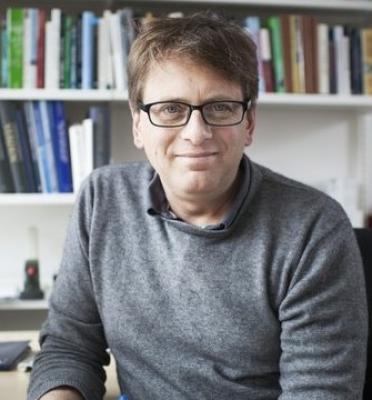
Andreas Roepstorff
Centre Director
Aarhus Institute of Advanced Studies,
Aarhus University
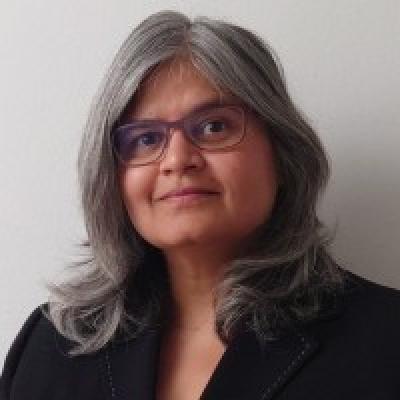
Taru Deva
Chief Executive Wizard
Biosymfonix Edugames
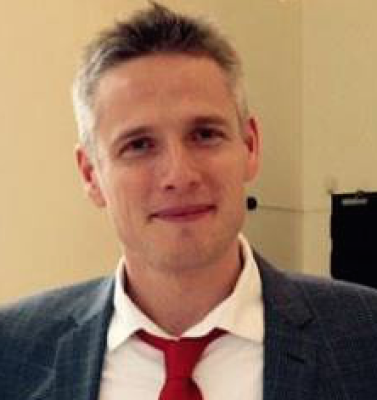
Claus Thrane
Head of Entrepreneurship Research Group
Department of Management,
Aarhus University
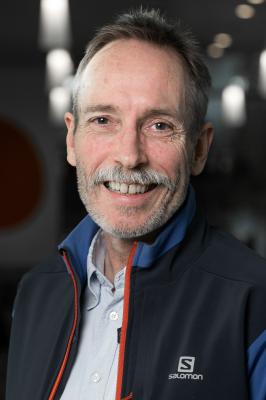
Per Blenker
Associate Professor Emeritus
Department of Management,
Aarhus University
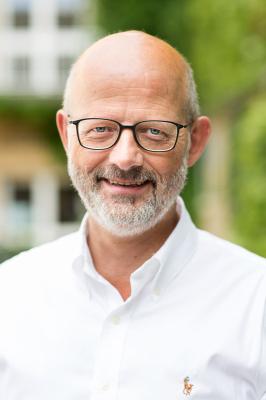
Niels Christian Nielsen
Professor
Institute of Chemistry,
Aarhus University
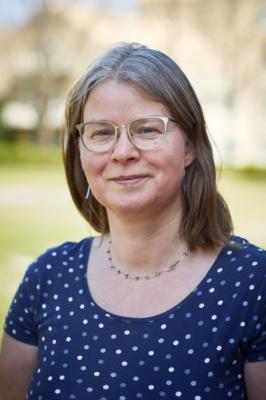
Kristine Kilså
Vice Dean of Education
Faculty of Natural Sciences,
Aarhus University
Acknowledgements
I have to acknowledge some critical thinkers who have come before me and shown me the way and their methods that I have adopted and contextualised.
Prof. Andreas Roepstorff - a great thinker and wise man with lot of openness yet critically reflective - even on ones own biases! He was the anthropologist I met on a train who told me that "the path to hell is often paved with good intentions".
Dr. Taru Deva - my life partner and co-founder but also a great critic and thinker - who has helped shape my visions and be open yet critical to all innovations and methods.
Assoc. Prof. Claus Thrane - An exceptional entrepreneurship educator in his own right and one who showed me the ropes of Entrepreneurship education and made me become an independent teacher of Entrepreneurship
Associate Prof. Emeritus Per Blenker - A constructivist teacher who helped me develop and appreciate values of constructive and reflective learning in Entrepreneurship Education
Prof. Niels Christian Nielsen (former Dean of Natural Sciences at Aarhus University) – who recognised my potential and gave me the task of spreading entrepreneurship education at the faculty of science and technology
Prof. Kristine Kilså, Vice Dean of Education, Faculty of Natural Sciences at Aarhus university has been supportive of my diverse methods including gamification of entrepreneurship education
And many other mentors, vice-deans, deans, colleagues and co-teachers who have all been instrumental in the development of my world-view in one way or another and/or have helped open the pathways or doorways to continuous impact. It would be too long a list to list all of you - but thank you all for being part of my journey!
Images
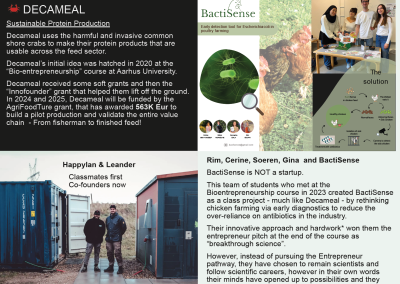
Entrepreneurial Scientists and Scientific Entrepreneurs definition
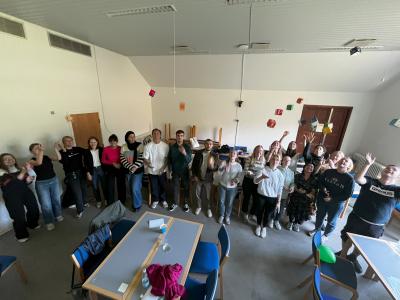
Students getting familiar with the various Sustainable Development Goals
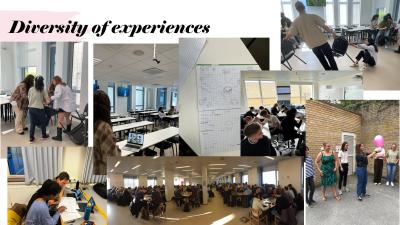
Diversity of classroom experiences
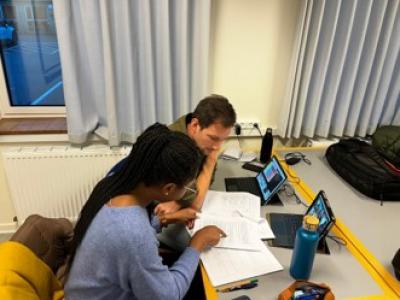
Case Reading and real-time negotiations with online teams from another discipline from another university
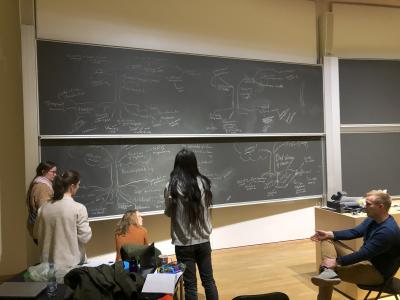
Falling in Love with the Problem_Deep diving into the problem tree
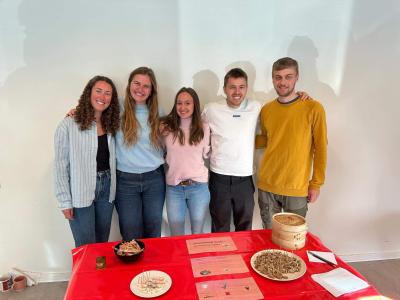
Protoype of a new plant based lobster presented in a trade fair format
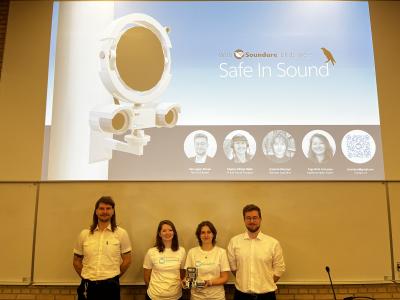
Final Pitch of a biologist team working with sound to protect birds
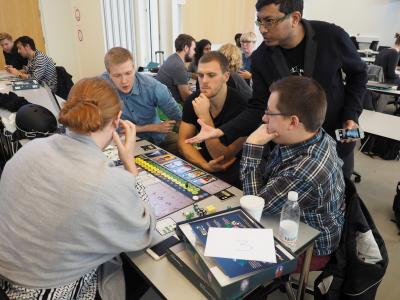
Active mentoring during an Entrepreneurship board game session
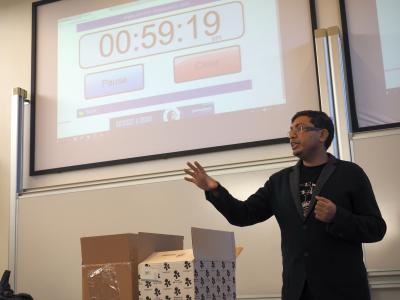
lecturing with countdown timer
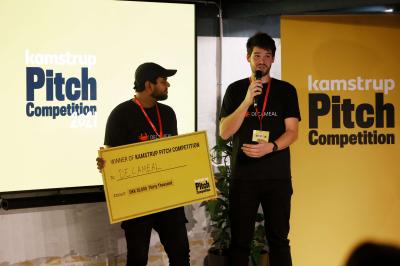
Decameal winning 30.000 DKK for a pitch
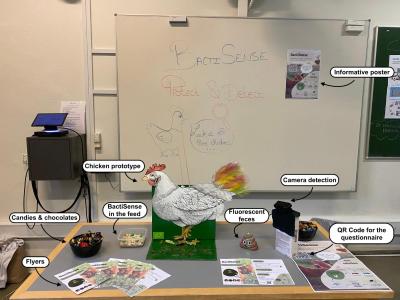
student prototype (look at all the different things they built & the time they put in)
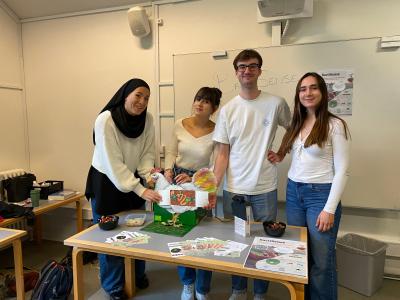
Bactisense team proudly displaying their prototype
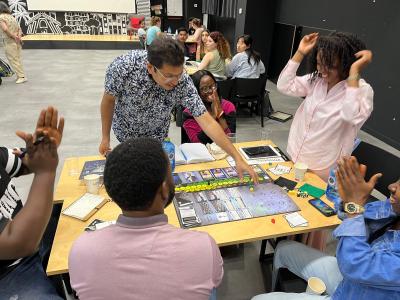
Students excited with getting something right in a game session
IMPACT STORY
Impacting lifesThe best impact an educator can have is on the confidence and competence level of the student. One example that stands out for me is a tale of two Biology Master students – Happylan and Leander that took my Bioentrepreneurship course. The students were initially sceptical (most science students are towards entrepreneurship methods as it is very different to their ways of doing things). Opening their minds and their skills allowed them to come up with a novel solution processing to a pressing problem of a boom in a particular species of crab in the Danish coastline due to global warming. Processing these crabs as a protein source for the fishery industry and calcium source for the poultry industry was a simple yet powerful climate-impacting idea that they came up with. But more importantly they decided to scale their idea as without scale their idea would not have the desired impact and they launched their startup after the course was over (2021) with continued mentoring from me for a while. In a weeks time since writing this – I will be attending their opening of a pilot plant that could now process upto 500 Tonnes of crab – an important milestone as they target the 5000 tonne milestone next. I love this story as usually biologists don’t take the startup route but end up usually in public office or research and sometimes industry careers. Their change from sceptic to believer (in themselves especially) is a transformation journey that I am happy to have unlocked! There are many such stories that I have been a part of and the statistics below showcase my contribution to EntEd - as an individual (not institutional - as I cover more than one institution)
LEARNINGS
Lessons learned
Biggest learning for me in my own journey that I would like to share with others is to be open as well as critical. Open to new methods, approaches and processes yet critical to their weaknesses as there is no golden method or one size fits all approach in entrepreneurship. Also, allow for student scepticism and tackle it with examples and brilliance. For e.g. I had students who question the value of the cold calling method to validate an idea for a fictional product (it was a fictional idea for Decameal as the student example) – and answer with reason as to why it is important to do it not because theory says so. Afterall – one doesn’t know what today is fiction will become reality tomorrow (which is what happened to Decameal).
Furthermore, it is important to embed playfulness into your methods as well as scientific depth. You should not necessarily be regarded as an expert as in most cases you will not be (esp in the areas that the students want to build an entrepreneurship project on) – but you should rather be regarded as wise. Cross-appropriating from varied experiences, fields and examples is the best way to inspire I have found.
Every method or dogma has a champion but they are a champion of their method whereas you must become a champion of yours as well as of the students. Own a method – adopt it and innovate your own derivative based on your context. Thats how new leaders and new methods and new thinking evolve. Finally, ethics and sustainability principles should be a foundational pillar upon which all methods, innovation and new ideas rest upon.
FUTURE PLANS
What's coming?
I always think that we should learn from the past, play with the future but design for the present. So, while I have had immense success with designing games that have helped solve certain problems and increase engagement – I also am aware that I dont want to just fill the classroom or process with games. There has to be a balance between play and reality. Many have said you can’t be a constructivist and a realist at the same time as they are logics that go against each other. However, I have argued and shown that you can – by switching between methods you can playfully construct different realities and at the same time confront the reality that is staring at you in real-time. So, my aim is to spread the value of diversity – not only of my culture and background (the most common form of diversity) but also diversity in thoughts, methods and disciplines.
Secondly, I am embarking on train the trainer initiatives. This was sparked when I recently presented to educators – how easy it is to gamify or embed entrepreneurship and build diversity of experience. One inspired educator came to me and said – you have made me rethink 20 years of teaching – and how just simple changes in a teaching process can invigorate the entire process and class. Another teacher, made an even more lasting impact – when he said, what you have done with the students here is once – and to one cohort. Once you leave – I have the task of learning from you and applying it to multiple cohorts. I have to learn what you do and apply it in my own way so that we cannot only achieve transformational teaching when you come as a visitor but it becomes our daily thing! Bingo - I felt - this is real Impact and this scale-up is my main future plan!

